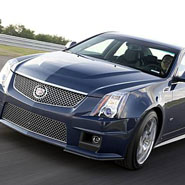
Affluent consumers are six times more likely to cut back as they are to spend more on pricey luxury products and services through the end of the year, according to the Luxury Institute. Consumers are not being nearly as frugal as last year. However, despite economic improvements, they are still holding back on making luxury purchases that are not discounted, creating a imperative for upscale brands to prove their value. “There are still a very large number of consumers that say luxury brands are still a commodity and there are too many brands out there competing for the same dollar not to have impeccable quality, craftsmanship and service,” said Milton Pedraza, CEO of Luxury Institute, New York. “I think the biggest finding there is that luxury is failing on some of the most critical attributes,” he said. “The quality, craftsmanship and service are not as good as last year. “Yes we may be in a recession, but you can’t compromise those elements.” The Luxury Institute surveyed consumers with an average household income of $286,000 and a net worth of $2.7 million for it's October WealthSurvey. Wealthy but frugal Luxury Institute’s study found that 36 percent of high-net worth consumers plan on decreasing their overall spending on luxury goods, products and services through the end of the year. Only 6 percent said they planned to increase their luxury spending. Thirty-seven percent reported a decrease in spending since the start of the year and 7 percent said they were spending more. Last year, 45 percent of affluent consumers had planned on cutting back on luxury spending. This year, consumers are less likely to control their spending, with 41 percent planning to spend money “more on what I need rather than what I want” in the near future, down 14 percent from 2009. Twenty-two percent of well-heeled consumers admitted to making impulse buys, despite efforts to tighten their purse strings. Areas that will likely see an increase from wealthy consumers include leisure travel, which 17 percent of consumers planned on spending in. Twelve percent of consumers anticipate spending more in dining, fitness and technology before the year is up. Wealthy consumers also plan to cut back on jewelry, where 33 percent of consumers anticipate cutting back, followed by home furnishings with a 29 percent cut from consumers’ budgets, a 27 percent cut in gifts and watches and 26 percent in handbags. Consumers look to cut back on shoes by 25 percent and cars by 24 percent. In general, these cutbacks are fueled by consumers’ genuine desire to make more intelligent purchases, rather than a fear of making conspicuous purchases. Fifty-five percent of consumers cited their cutbacks as a desire to spend their money more practically as opposed to the 15 percent that said they are trying to make “less conspicuous” luxury purchases. Sixty-five percent of consumers say they purchase luxury items because of their integrity and value and 58 percent claim to purchase them for personal enjoyment rather than to show off. Fifty-three percent purchase them for their lifetime guarantee and free alterations or repairs. “You need to live off service values that you commit to and you have to create a service culture that makes customers feel special,” Mr. Pedraza said. “They are paying a premium.” Budgets for discounts Despite all of the anticipated cut-backs for consumers, 20 percent did expect an increase in spending in discounted luxury goods for the remainder of 2010 and 25 percent have been spending more in the first eight months of 2010 than they did in 2009. Generally, discounting goods is not part of the luxury experience and top tier brands stray from doing it. But 38 percent of affluent consumers reported than a significant discount would influence their purchasing decision. One way that brands can offer discounts without affecting their image is through mobile applications, which the market will see an increase in next year, according to the Luxury Institute. By offering select coupons and sales to a brand’s top customer it can enhance its service without risking the integrity of its image. “The top three luxury companies are focusing on their service levels and are trying to create customer centric programs,” Mr. Pedraza said. “You need to outperform and out behave. “They are going to start equipping people in the store with mobile devices and making sure they are synchronized, so the staff doesn’t have to go to a PC,” he said. “They will make transactions in real time. “The CRM will immediately alert that a top tier customer just came into the store.” Final Take Kaitlyn Bonneville, editorial assistant at Luxury Daily, New York
